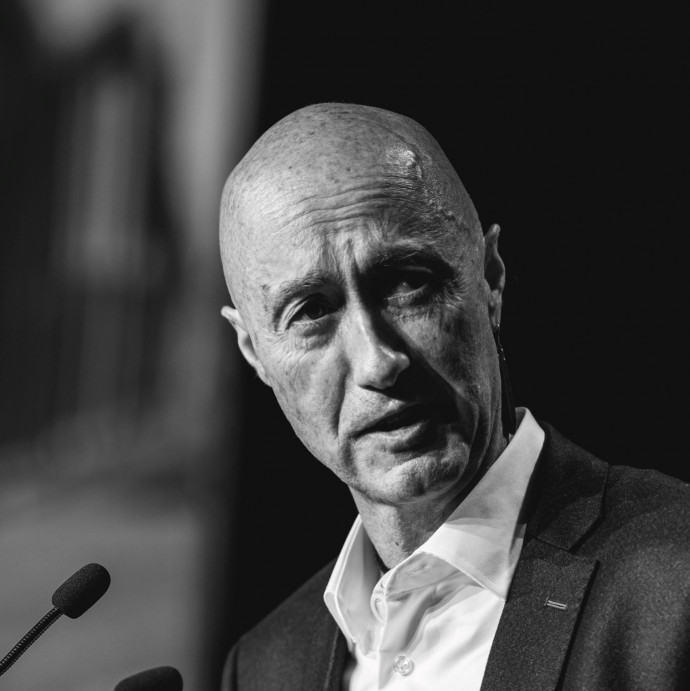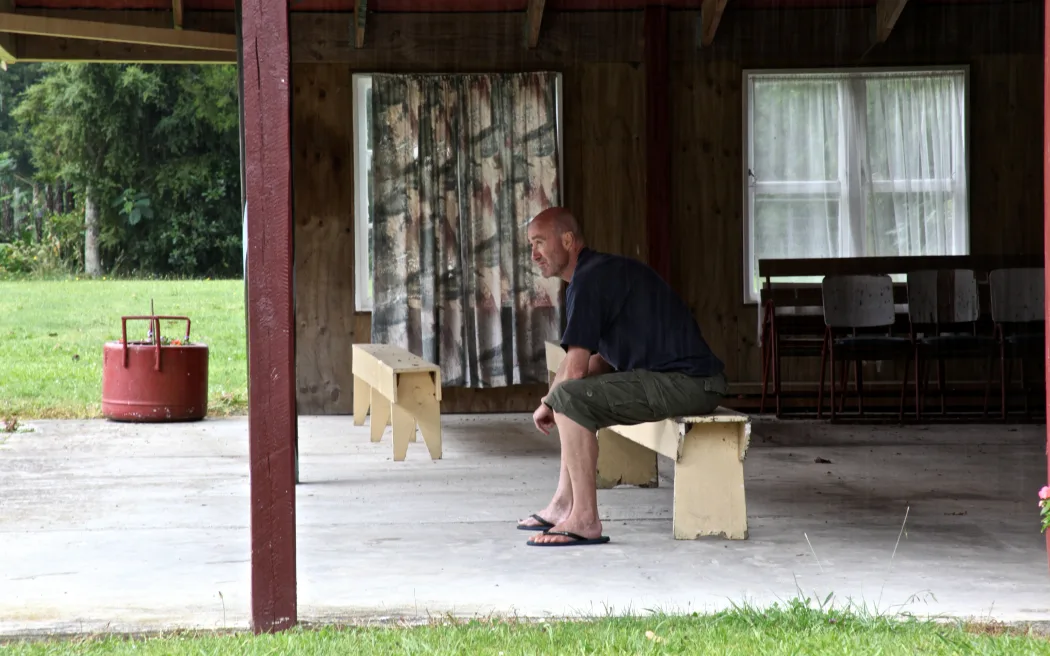News
Published 28 August 2024New Companion: Professor Paora Tapsell

Professor Paora John Tohiteururangi Tapsell has been elected as a Companion of Royal Society Te Apārangi for his far-reaching innovation, commitment, and leadership within Māori communities.
Paora has been a consistent advocate for Māori health and wellbeing. He has led and participated in research projects focusing on Indigenous issues, heritage, and community development, particularly within Aotearoa and the Pacific. His work synthesises social science and Mātauranga research, addressing challenges such as heritage protection, water security, food sovereignty, and the impact of climate change on Indigenous peoples and ecosystems.
In recent years, Paora has become known for his Takarangi Research-led work under Project Kāinga, a five-year research programme assisting isolated marae communities to better shape a future that builds community and environmental resilience in the face of climate change.
Spanning three decades, Paora’s career has seen him in roles as a curator, director, and an academic. He has worked, researched, exhibited, consulted, and lectured worldwide.
When asked what has inspired him in his career, Paora reflected on the kin-leadership he has been surrounded by.
“They constantly challenged me to look beyond the obvious and strive for answers from deep within, which will guide our people and lands out of hardship and back onto an ancestrally paved path of unity, service to all others and wellbeing.
“Māori have paid in full many times over in the creation of our nation: in land, labour, blood and dislocation. If our nation is to evolve and be prepared for climate change, the time has come for meaningful inclusion of Māori as equals for all our grandchildren’s sake.”
He says his journey is one of a favoured pōtiki (youngest child) growing up in a racially divided country.
“I searched for answers overseas. But not until I returned home to Rotorua, where my remaining elders opened my eyes to what taonga can really represent to our people, that I found direction and purpose.”
In 1990, Paora became the first Māori in Aotearoa New Zealand to be appointed a curator of art and history, this being at the Rotorua Museum.
He says this was one of the first steps in his journey.
“[It] took me into museums where taonga have remained captured within a value system of disconnected ownership, mirroring the same hardship of isolation, exclusion and exploitation being experienced by their equally disconnected descendants, whether living at home in impoverished marae, or crammed into emergency housing in faraway cities.”
In the mid-1990s Paora returned to academia to complete a Master of Arts in Social Anthropology, before going on to read for a doctorate in Museum Ethnography at Pitt Rivers Museum, University of Oxford.
He then completed a Post-Doctoral Fellowship at Australian National University, where he wrote his first book Pukaki – a comet returns. First of many publications, this book won the E.H. McCormack Best First Book non-fiction prize at the New Zealand Book Awards.
Since then, Paora has held many other firsts. In 2000, he became the first Tūmuaki – Director Māori to be appointed at Auckland War Memorial Museum Tamaki Paenga Hira. At the same time, he co-founded the inaugural Museums and Cultural Heritage programme at University of Auckland, becoming its first Senior Lecturer.
Three years later, in 2005, he became the first Māori to be made an Eisenhower Fellow, representing Aotearoa New Zealand in the United States of America.
In 2008, he completed a Postgraduate Diploma in Business Management, which focused on Indigenous engagement in and beyond museums. His studies not only won him the Auckland Business School Dean’s Senior Prize, but also inspired the creation of Māorimaps.com.
Now, the Māorimaps.com website is used by over 25,000 people per month, directly aiding the 95% of now urban-raised Māori to reconnect to their more remote home marae communities or kāinga.
The website lists 780 marae across the motu, providing invaluable background, contact details location and descriptions of associated hau-kāinga, hapū and iwi, assisting descendants safely reconnect to their home after three or more generations of separation.

Paul Tapsell Photo: Courtesy of Māori Maps/Krzysztof Pfeiffer, Te Potiki National Trust.
In 2009, Paora was appointed Dean of Te Tumu – School of Māori, Pacific and Indigenous Studies and became University of Otago’s Professor and Chair of Māori Studies.
In 2017, Paora travelled across the Tasman to become the Director of Research and Collections at Museums Victoria, Australia before being appointed Professor of Indigenous Studies at University of Melbourne where he established and directed Australia’s first multi-disciplined undergraduate, postgraduate and PhD Indigenous Studies Program.
The double impact of COVID-19 and climate change on marae communities back home saw Paora once again shift gears, returning to Aotearoa to become the Principal Researcher of Takarangi Research (NZ), and a lead-investigator on five Aotearoa New Zealand and Australian socially-responsible research projects.
Part of this mahi is a Marsden-funded project, accessing orally maintained narratives to uncover the central role kūmara played in Pacific exploration and successful settlement of Aotearoa. Until arrival of Europeans, kūmara was the staple root crop for marae communities, ensuring prosperity and wellbeing across the generations (See RNZ interview: Paora Tapsell: What kūmara reveals about Māori history.)
Paora remains a Professorial Fellow at the Australian National University and was recently appointed as an Adjunct Professor at Lincoln University in the Faculty of Environment, Society and Design.
When asked what his vision for the future of his area of mahi is, he says his elders left him pearls of wisdom, but the one he reflects on the most is: “Whakamahia ngā taonga hei whakaora i te tangata, ma koutou e whakaora te whenua. Use the taonga to heal the people and you will heal the land.”
Paora says everything he does today is focused by that ōhaaki left by his elders.
“Although not directly working in museums, my engagement with taonga through current research projects continues, both here and overseas. Taonga remain the key to unlocking our people and our lands.”
He says by working together as equals, we will best prepare our nation to survive a climate-impacted future unlike anything previously experienced.
